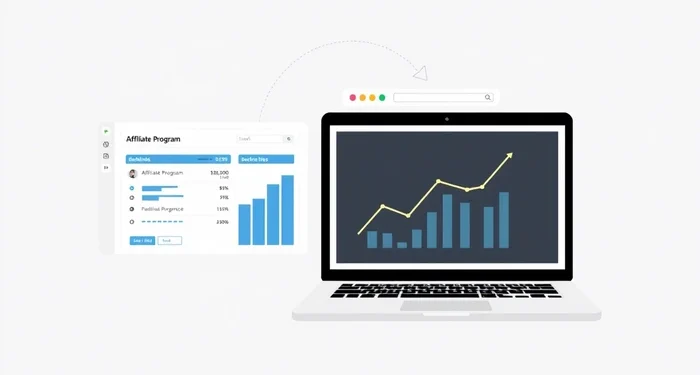Affiliate marketing is widely regarded as a revenue-generating medium. But when used strategically, it can also be a powerful tool for building links. Businesses, publishers, and SEO professionals are increasingly embracing affiliate partnerships in their broader digital marketing strategies, not just to drive sales but to build quality backlinks that improve search engine visibility.
In this article, we’ll explore how affiliate programs can be leveraged to earn valuable backlinks, enhance domain authority, and support long-term SEO goals. While the primary purpose of affiliate marketing is transactional, its link-building potential should not be overlooked and there where professionals like Backlinker at https://backlinker.agency/en/ play a solid role.
The Overlap Between Affiliate Marketing and Link Building
Basically, affiliate marketing is all about paying out partners for the sale of a product or service on commission. Affiliates create content — reviews, tutorials, list articles, or social media content — that feature affiliate links. These links, although usually nofollowed to conform to search engine requirements, nevertheless provide a fantastic secondary SEO benefit.
More significant, however, is the fact that certain affiliate content does receive organic backlinks from other websites. Top-performing affiliate reviews or tools get referenced by other sites, forums, and blogs, resulting in a cascading link-building phenomenon. In short, affiliate-driven content becomes linkable content.
Key Benefits of Using Affiliate Programs for Link Acquisition
Scalable Content Distribution
When you begin an affiliate program, you essentially build a decentralized content marketing team. Affiliates produce various types of content on various sites, from niche blogs and YouTube channels to social media and forums. While not all affiliate links will directly contribute to SEO (due to nofollow attributes), they contribute to brand awareness and content discoverability, both vital for organic link attraction.
Such scale is difficult to achieve with only internal content teams, hence why affiliate networks are such a valuable addition to your backlinking arsenal.
Creating Linkable Content Through Affiliate Synergy
Affiliates are inherently content creators. Many of them heavily invest in the development of fantastic articles, videos, or case studies to help their audiences make conversions. They almost always include graphs, tutorials, and new spins that inherently yearn for organic third-party backlinks.
For example, a well-crafted tutorial with your product may initially turn out to be referenced in a number of blog entries or referenced in Quora answers. Over time, the affiliate content you produce starts gaining backlinks independent of the affiliate links themselves.
Better Brand Authority
Getting your brand name referred to on multiple affiliate sites — even with nofollow links — establishes a credibility footprint. Repeated mentions indicate to search engines that your brand is present and of interest in your niche. Such visibility can enhance your ability to receive natural backlinks from editorial sites, journalists, or researchers who are exposed to your brand through affiliate content.
Agencies like Backlinker understand how to merge affiliate-driven content with more comprehensive SEO tactics to create brand signals and natural links. Their approach involves not only technical SEO but outreach, crowd marketing, and content strategies that enhance the impact of affiliate collaborations.
Also Read: Boosting Brand Awareness with AI-Generated Voiceovers in Marketing Campaigns
How to Structure Your Affiliate Program for Link-Building Advantage
Prioritize the Right Affiliates
Not all affiliates are created equal. Some are coupon sites that are conversion-only, while others are influencers or niche experts with live YouTube channels and blogs. If your goal is to get links as well as sales, target content-driven affiliates who already have search engine rankings and create evergreen content.
Contact bloggers, review sites, and learning platforms within your niche. Such partners will be more likely to write substantial content that is linked by other sites in the long run.
Provide SEO-Friendly Affiliate Content
Your affiliates will be more likely to produce linkable content if you provide them with valuable assets. Give them material such as:
- Quality product imagery
- Keyword suggestions
- Pre-written statistics or studies
- FAQs and comparison of products
- Success stories or use cases
These resources will help affiliates craft informative content with SEO rankings, with which secondary backlinking can be done with favorable chances.
Allow Content Flexibility
Avoid imposing pressure on sticking affiliates to constricted templates to produce content. Allow affiliates their creativity, where they are allowed the freedom of structuring content according to audience needs. Affiliates receiving their voice and specialized expertise merged in content are likely to write engaging materials and get cited.
That being said, establish definite expectations regarding brand messaging, product depiction, and keyword usage to avoid conflicting with the need for creativity.
Tips to Optimize Backlink Potential Through Affiliate Content
Track Mentions and Link Sources
Utilize SEO tools like Ahrefs or SEMrush to track where your affiliate content is being cited or linked. If you see an affiliate post that is driving organic links, consider pushing that content more or even collaborating with the affiliate on new articles. You can even reach out to sites that have quoted the affiliate article and ask them to link to your original product page or resource.
Encourage Internal Linking to Your Site
In your affiliate manual, encourage affiliates to link to your blog entries, comparison pages, or FAQs as well as the product pages with affiliate link tracking. These internal links can be dofollow and can distribute link equity across your website.
It’s a sly but effective way to turn affiliate-based content into broader SEO benefits because those internal links increase your site’s authority and keyword focus.
Cross-Functional Collaboration with SEO Teams
Be sure that your affiliate program doesn’t exist in a silo. Your content marketing and SEO teams must work closely with your affiliate managers to identify high-performing content, optimize landing pages for affiliate traffic, and co-create pillar content that can be used as a reference by affiliates.
Agencies like Backlinker can play a big role here, acting as the go-between between content creation, SEO planning, and link acquisition via their combined service package.
Possible Pitfalls to Evade
Relyance on Low-Quality Affiliate Networks
Avoid getting lured into working with low-quality affiliate networks that fill your brand with spammy or irrelevant links. Such partners can inundate forums or comment areas with badly written content, potentially harming your brand and SEO reputation.
Screen affiliates at all times for quality, relevance, and brand values compatibility.
Breaking Search Engine Guidelines
Affiliate links should be properly tagged with rel=”nofollow” or rel=”sponsored” in order to stay within Google policies. Failure to do so would result in penalties. However, as mentioned, the indirect link-building benefit of affiliate content still remains significant regardless of tagging.
Not Tracking Analytics
Don’t just quantify your affiliate program in terms of sales. Track backlinks, brand mentions, referral traffic, and keyword rankings generated by affiliate content. These other metrics will help you better understand the SEO impact of your affiliate strategy.
Read Also: Signs Your Remote Workers May Be Struggling
Conclusion
Affiliate programs can be far more than simply sales machines — they’re planned content delivery systems that, if implemented thoughtfully, can create such enormous link-building rewards. By working in partnership with the right content producers, arming them with SEO-friendly assets, and monitoring the ripple impact of their content, businesses can leverage affiliate partnerships into a bountiful source of organic growth.
Implementing this strategy as part of your entire SEO strategy, maybe under the guidance of expert agencies like Backlinker, is a sustainable and well-balanced campaign that goes beyond conversions. It builds authority, visibility, and eventually a stronger online presence rooted in credibility and trust.









